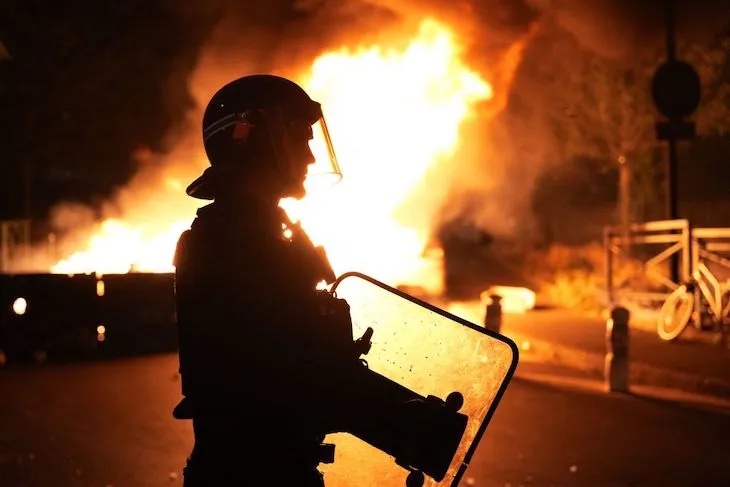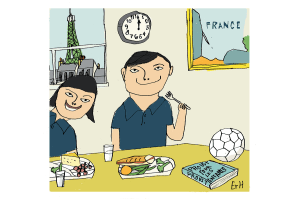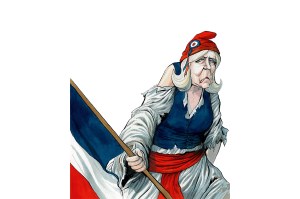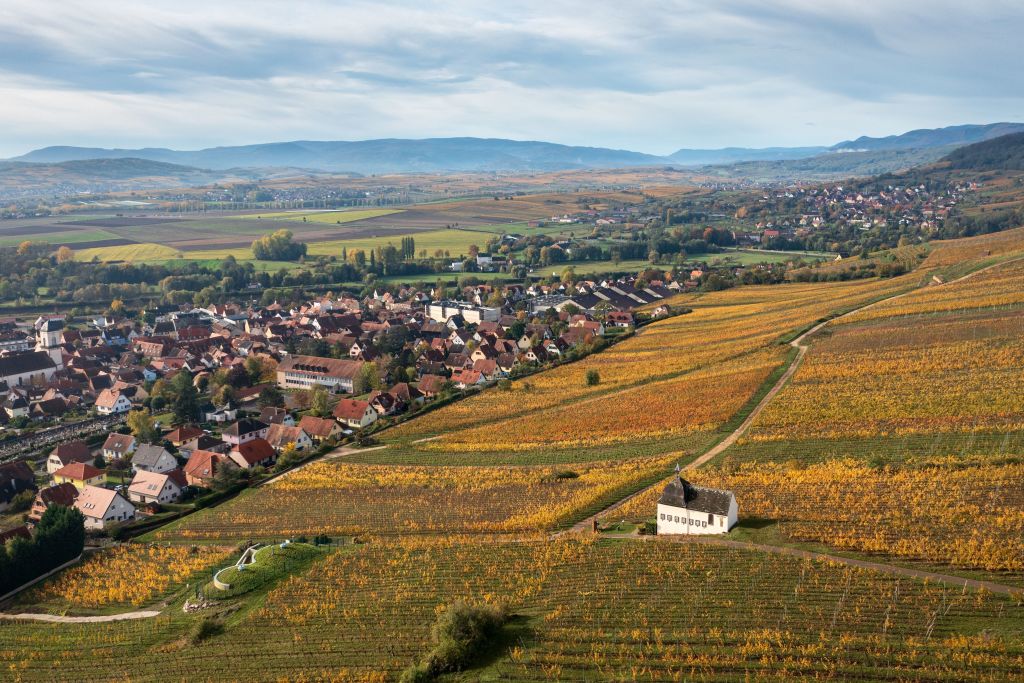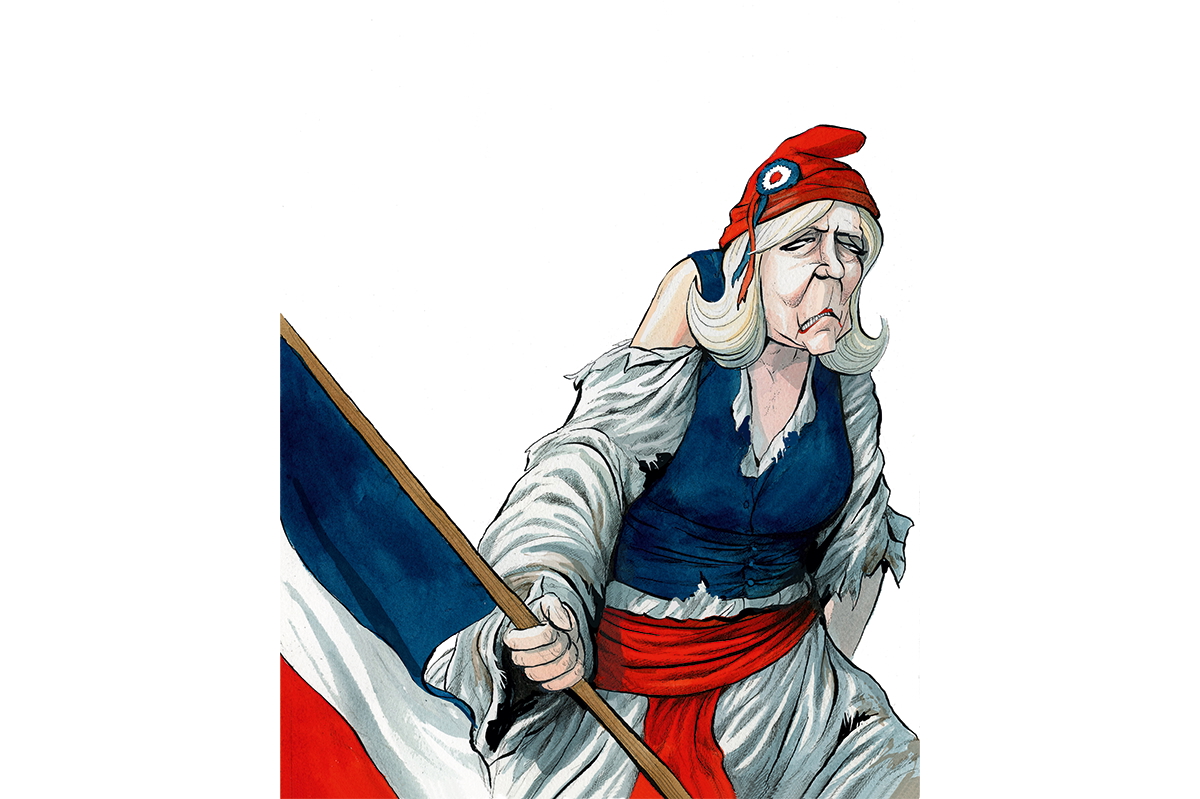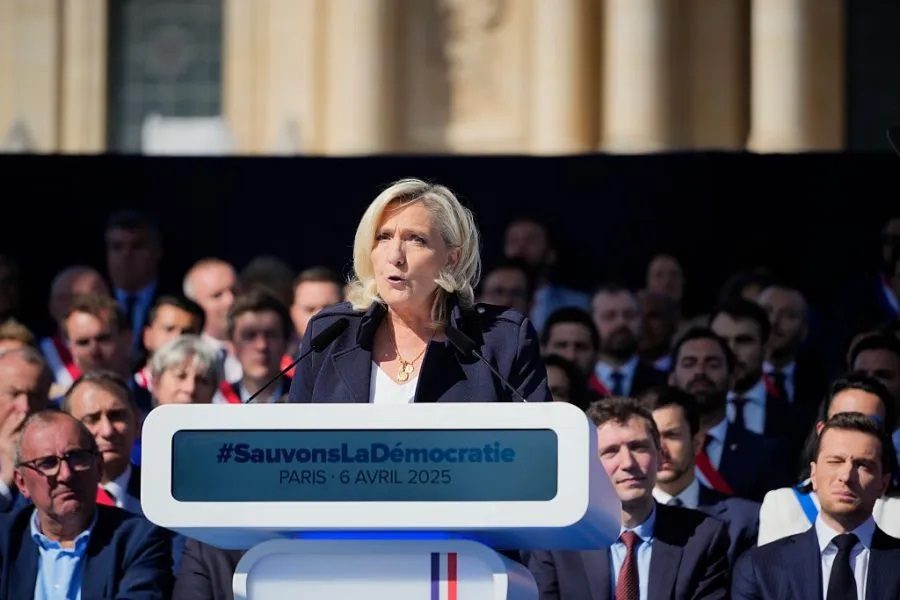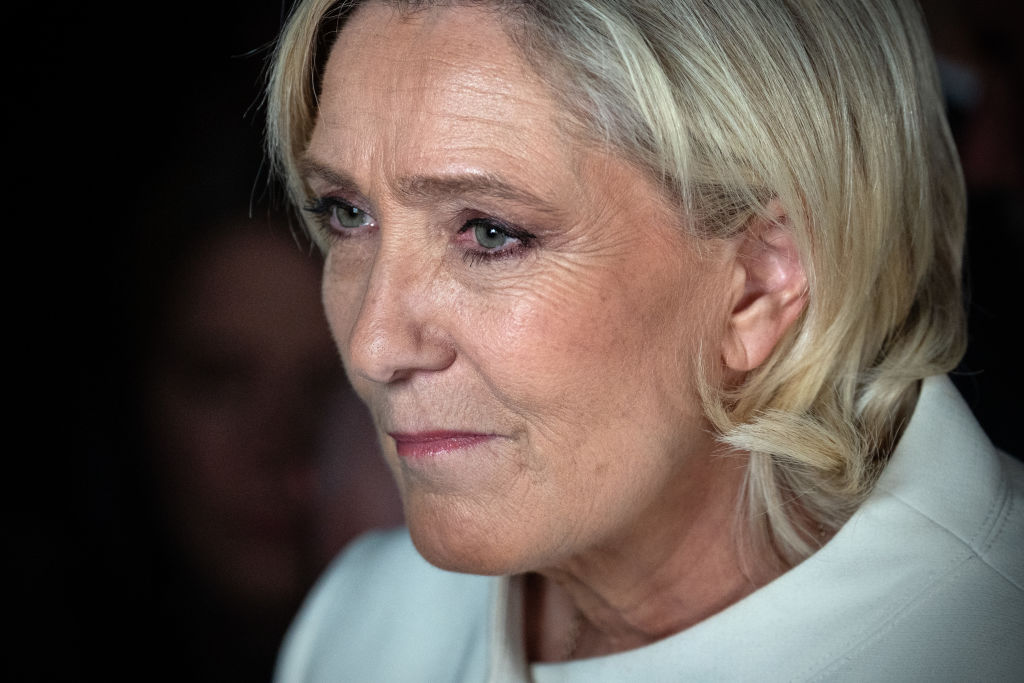Is France at war? Alain Finkielkraut, one of the most popular and respected — if controversial — intellectuals in France, appears to think so. Finkielkraut recently made further enemies by joining a growing set of French intellectuals, writers and politicians who say that France is in the midst of a desperate battle. To Finkielkraut, the rioting and looting that ripped across France earlier this summer was part of an ongoing conflict between two groups: those who respect Republican values and those who hate the French Republic.
What Finkielkraut fears above all is that the French Republic might buckle under the strain of this fight. What has been happening in France, he said in an interview in the latest issue of Causeur, “is the inexorable ‘Lebanonization’ of France.” This “internal war,” he goes on to say, is far from over.
Philosopher Michel Onfray shares Finkielkraut’s troubling assessment: he argues that “a civil war” has been happening in France for a long time, but that it is taboo to say so in “civilized, liberal” political discourse.
Talk of war is spreading out of intellectual circles. In the aftermath of the June riots — triggered by the killing of seventeen-year-old Nahel Merzouk at the hands of a policeman in the Parisian banlieue of Nanterre — the two French police unions openly described themselves “at war… with vermin.” This statement echoed the so-called “Lettre des généraux,” an open letter from retired generals and more than 1,000 French soldiers, published in April 2021, which said that “hate-filled, fanatical partisans seek only racial war. They hate our country, its traditions, its culture and want to smash it into pieces.”
The letter concluded that “a civil war will bring an end to the growing chaos, and the dead, for which you (the government) will be responsible, will be in the thousands.” Politicians like Éric Zemmour and Marine Le Pen have joined Finkielkraut and Onfray’s ranks, too. Le Pen said in 2021 that conflict was “brewing.” Zemmour claimed that this summer’s riots were the “first throes” of civil disorder.
The novelist Michel Houellebecq has said that he is sure that a “civil war” in some form or other will happen in France in his lifetime, and the right-wing author Laurent Obertone, much admired by Houellebecq, is certain that this verdict is correct.
Obertone predicted as much in his best-selling trilogy of novels, Guérilla. The first book was published in 2016 with the sub-title “Le jour où tout s’embrasa” (“The day that everything exploded”). The book begins with a shootout between drug dealers and the police in the cité Taubira, a fictional council estate to the north of Paris. Several dealers are shot and killed by a single panicked policeman, who is terrified that he is about to see his young colleague sliced into pieces by a machete.
The cité in Obertone’s novel explodes into violence which, driven by social media and the mainstream media, soon spreads through the whole of France. Within days, the conflict is out of control and looks exactly like a real civil war. All of this is watched over by colonel Fourreau, an old-style right-winger and patriot who is the only person who seems to see what it is at stake: the very existence of the French Republic.
One of the most disturbing aspects of this summer’s riots in France was the way in which the violence specifically targeted symbols of the French Republic. Police stations, schools, tax offices, town halls, post offices, prisons and elected politicians all came under attack. Until now, although a best-selling writer, Obertone has been a marginal figure in France, the darling only of the far-right. But, in the wake of the riots, he said he could see that his ideas were now entering the mainstream.
On the other side of the battle lines, the rhetoric has been equally inflammatory, although couched in different terms. Jean-Luc Mélenchon, leader of the left-wing party La France Insoumise, refused to call for calm at the height of the disturbances, blamed police, and said it was “the poor who were rioting.”
This was too much for his partners in the shaky coalition he has built with other left-wing parties, who all distanced themselves from his position. But it didn’t stop the Libération newspaper jumping in with the headline: “The people are rebelling!” This, of course, plays into one of the oldest French, and specifically Parisian, myths that “the people” are virtuous and all on the same side. Libération’s view, that the French state was waging war against the public, was not shared by the ordinary people whose shops, businesses and services were wrecked and ransacked.
“If this is a war,” lamented Belaid, an Algerian shopkeeper in my own working-class quarter of Paris, “It is a war against us — the people who work hard.”
The French left, or at least a wing of it, continues, however, to romanticize nihilistic riots as war against the French state. As recently as 2022, a Netflix film called Athena, directed by Romain Gavras, was based on the premise of a civil war between immigrants from the banlieues “rebelling” against state oppression in the form of the police (again the trigger for the violence is the death of a young boy at the hands of the police). This film is, of course, a precise mirror image of the dystopian fantasies of Obertone.
For now, talk of the “coming civil war” in France remains, happily, a chimera. As all military historians and military professionals know, however, there is always a dangerous moment when, quite suddenly and without warning, the language of war can become the real thing.
This article was originally published on The Spectator’s UK website.



